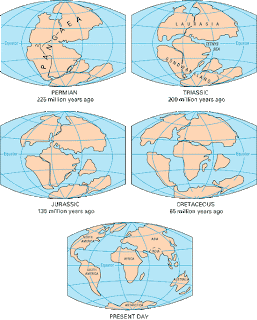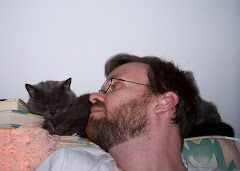 My last opponent in the Silver League this season was very elusive. Not on the court, but in avoiding my attempts to schedule a match with him. By our last week, he'd only played two matches (out of six), and I'd heard stories from other players that he was impossible to get a hold of.
My last opponent in the Silver League this season was very elusive. Not on the court, but in avoiding my attempts to schedule a match with him. By our last week, he'd only played two matches (out of six), and I'd heard stories from other players that he was impossible to get a hold of.On the Sunday of the week our match was to be played, I emailed him to set up a match. He didn't respond. There was a phone number next to his name on the league roster (labeled "work phone") but every time I tried to call it, the phone just rang and rang and rang. What the hell is this guy's deal? I wondered. Why would you sign up to play in a league, pay $90, and then not bother to schedule your matches (or even respond to attempts to schedule)?
He had an Asian name, so I wondered if it was a language/culture thing. He did finally respond to my email on Friday, to tell me he could play on Sunday and to ask me to schedule a court. So I did and told him what time to be there. (He neither confirmed nor denied this was a good time for him.)
 I showed up at the scheduled time and waited. I'd never seen him before and had no idea what he looked like, and none of the people I talked to had any idea who he was. Most people have to either win their way into the Silver League (like I did) or have some proven qualifications to get in. But it was a complete mystery where this guy came from. From the looks of the two matches he did play, he didn't appear to be qualified. He'd lost both of them badly.
I showed up at the scheduled time and waited. I'd never seen him before and had no idea what he looked like, and none of the people I talked to had any idea who he was. Most people have to either win their way into the Silver League (like I did) or have some proven qualifications to get in. But it was a complete mystery where this guy came from. From the looks of the two matches he did play, he didn't appear to be qualified. He'd lost both of them badly.I was hoping, indeed counting on it, that I would beat him to avoid getting last place for the third straight session. Ever since my amazing run of 12 straight victories to win the Bronze League last fall, I'd been in a slump. The Silver League offers much tougher opponents, and although I was fairly competitive in most of my matches, I had an overall record of 2-15 so far.
In the first session I went 0-4, which should have sent me back down to the Bronze League, but since they didn't have enough people to fill out the Silver, I got to stay. The same thing happened after the second session, when I went 2-5 but still got last place because the other two guys who went 2-5 beat me. (In a fluke of epic proportions, both my wins were against the top two players.) So far, in my third Bronze League session, I was 0-6 and playing to avoid the cellar three times in a row.
 But I was confident that, whoever he was, I would take the mystery guy.
But I was confident that, whoever he was, I would take the mystery guy.After keeping me waiting in suspense as to his true identity, he finally showed up about five minutes late. He walked up to the guy at the counter and said in a tiny voice, "Tim?" (Like the guy at the counter would be opponent.) Two things struck me about him immediately:
1.) He looked to be about seventeen years old.
2.) He had a glassy vacant look that made me wonder if he was high.
During warm-ups it became apparent that he had no business being in the Silver League. Part of me resented that he was even allowed to play in it, since I'd had to win my way into it. Another part of me was thrilled with the prospect of an easy, unambiguous smack down. After the season I'd had, I really needed a win like that.
But the actual match didn't start off according to plan. Although he didn't move well and his shots didn't have much power, he got everything back. His style was so different from what I was used to that I got impatient and made lots of stupid errors. We had some long games and points, but his consistency, my erratic play, and a few questionable calls on his part gave him a big 4-0 lead to start off the set.
Despite my slow start, I was still 100% sure that I would beat him. I don't know why, but I just refused to believe that he could beat me. I was still on track to a 6-4, 6-0 victory. With that plan in mind, I won the next three games easily, only losing two out of 14 points. At 3-4, we had a long deuce game. At one point I hit a shot down the line that landed at his feet. He put his hand up, indicating that it was wide. I thought the shot looked in by a good six inches, so I walked up to the net and I asked him to clarify, "Did you call that shot out?"
He immediately changed the call and said it was in, then mumbled that he didn't feel well. He said "4-4" and started to throw me the balls for my serve, but I told him that I hadn't won the game yet. I'd only won that point, and we were still at deuce. After a few more points I won the game, and then won the next game easily to go up 5-4. By this time he was hardly moving around the court at all.
 At the changeover I asked him, "Are you OK? You don't look so good." He didn't answer me, but just kept that stoic, drugged-out look on his face. I repeated the question four or five times. He spoke so softly I could barely hear him. His behavior was so bizarre I entertained the thought that maybe he was autistic.
At the changeover I asked him, "Are you OK? You don't look so good." He didn't answer me, but just kept that stoic, drugged-out look on his face. I repeated the question four or five times. He spoke so softly I could barely hear him. His behavior was so bizarre I entertained the thought that maybe he was autistic.I would have suggested we stop playing, but I was one game away from winning the set, and I'd be damned if he was going to take that away from me. The next game was ugly. He could hardly get his serve over the net, and when he did and I returned it, he wouldn't even try to hit it back. When I won the set, 6-4, it was obvious he couldn't play anymore. I walked up to the net and asked him if he wanted to continue. He said he wanted to stop.
If I were playing anyone else, I would have suggested we reschedule the second set for another time when he felt better. But it had taken so long to schedule this match, and I knew he had three other matches to schedule, I wanted to be done with him. It was like playing tennis with a zombie: no fun and a little frightening.
 He said I could write 6-0 for the second set when I recorded our match result, but that didn't feel right. So I treated it like a "retirement", which is what the pros do when someone can't continue a match due to illness or injury. I wrote "6-4, ret."
He said I could write 6-0 for the second set when I recorded our match result, but that didn't feel right. So I treated it like a "retirement", which is what the pros do when someone can't continue a match due to illness or injury. I wrote "6-4, ret."Even though I won, it was a profoundly disappointing victory. I never got to really prove that I was a better tennis player. I was annoyed at my opponent for being so out of it, being so uncommunicative, not giving any effort during the warm-ups, winning the first four games, and then just giving up once I started to turn things around. Lest I come across as an asshole, I don't believe for a minute he was actually sick. I think he was just out of shape (or maybe on drugs) and couldn't handle the strain of a real match.
Afterward, I saw him in the parking lot smoking a cigarette. That douchenozzle had no business being in the Silver League.











.jpg)